It is important that you to become as informed as possible about your injury or condition. The Internet is an amazing educational tool, but should be approached and interpreted with caution. Several studies, including those performed by Dr. Taylor and colleagues (1-3) have shown that the quality and accuracy of information available on the Internet is not only highly variable, but often outright wrong and misleading. Patients can improve the quality of information returned during a search by using more sophisticated and medically accurate search terms. Dr. Taylor encourages you to use the Internet to learn more about your condition and will provide you an accurate search term.
The educational content on this website was written and arranged by Dr. Taylor to ensure quality and accuracy. Select your diagnosis from the navigation bar to the left of the screen. Additional websites vetted by Dr. Taylor for accuracy include:
American Academy of Orthopaedic Surgeons (AAOS)
American Orthopaedic Society for Sports Medicine (AOSSM)
Hospital for Special Surgery, For My Patients
- Garcia G, Taylor SA, Dy CJ, Christ A, Patel RM, Dines JS. Online Resources for Shoulder Instability: What Are Patients Reading? JBJS Am. 2014 Oct 15;96(20)e177.
- Dy CJ, Taylor SA, Patel R, McCarthy MM, Roberts TR, Daluiski A. Does the Quality, Accuracy, and Readability of Information About Lateral Epicondylitis on the Internet Vary with the Search Term Used? Hand. 2012 Dec; 7(4):420-425.
- Dy CJ, Taylor SA, Patel RM, Kitay A, Roberts TR, Daluiski A. The Effect of Search Term on the Quality and Accuracy of Online Information Regarding Distal Radius Fracture. J Hand Surg Am. 2012 Jul 31.


